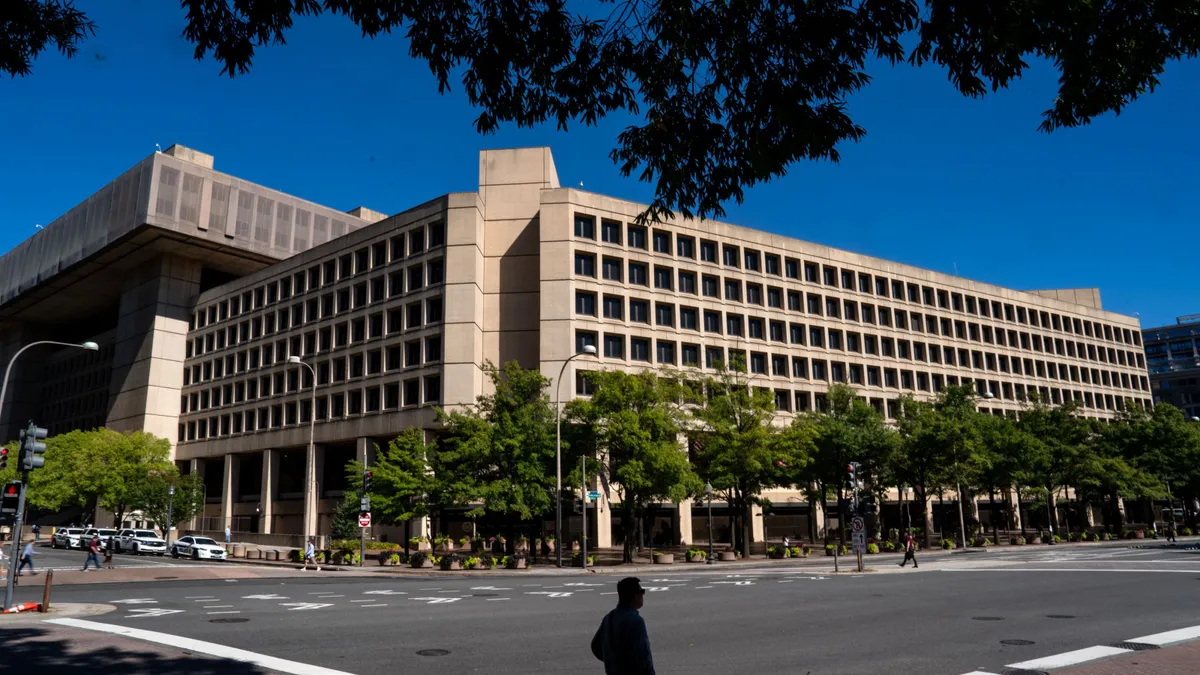Dive Brief:
- As the federal government attempts to optimize space and reduce unused portions of its portfolio, occupancy insight firm FM:Systems has received Federal Risk and Authorization Management Program, or FedRAMP, authorization for its FMS:Workplace solution, the company announced Wednesday.
- The FedRAMP designation approves FMS:Workplace for use by federal agencies where any compromise of confidentiality, integrity or availability could significantly impact agency operations, assets or individuals, per the release. The FMS:Workplace platform includes space, asset, moving, maintenance, real estate, sustainability and project management tools, as well as strategic scenario-planning capabilities, the company says.
- FedRAMP reduces the time, cost and administrative burden associated with vetting cloud-based solutions, allowing agencies to adopt FMS:Workplace quickly, FM:Systems says.
Dive Insight:
The federal government’s real estate portfolio and workplaces came under scrutiny earlier this year as part of the Trump administration’s effort to cut the size of government. The administration says it’s trying to act on long-standing office utilization problems while at the same time instituting a full return-to-work mandate subjecting employees to mass firings and taking an on-again, off-again approach to listing federal properties for sale.
FM:Systems says its workplace management solutions will help federal agencies manage, analyze and report on facilities and real estate operations and maintenance in one place. The company’s solutions are already deployed across government institutions, including many executive departments of the federal government. FedRAMP authorization will help agencies adopt FMS:Workplace more quickly, avoiding costly and redundant evaluations while ensuring continuous compliance with federal security standards, the company says.
“As government agencies drive forward the efficiency and effectiveness of operations, FedRAMP authorization for FMS:Workplace is a clear indication that security and reliability are at the forefront,” FM:Systems chief strategy officer Brian Haines said in a statement.
The company also received FedRAMP authorization for its room and desk booking solution, FMS:Employee, per the release. The software enables occupants to reserve rooms, equipment and service for remote and in-office employees; gives employees access to calendars and allows them to reserve spaces with mobile scheduling; provides interactive floor plans that can accommodate desk-sharing initiatives; and streamlines events and visitor management, according to the company’s website.
The solution also provides outlook integrations to unite meeting and room bookings, IoT sensor integrations to measure real workspace utilization, and data analytics tools to help operators to understand what spaces are underutilized and under-performing, FM:Systems says.
Federal portfolio utilization has been a problem before the current administration, with one of President Biden’s last legislations signed into law including measures to address inefficient use of office space and draw federal employees back into the office. The Thomas R. Carper Water Resources Development Act of 2024, or S.4367, includes provisions to reform the GSA with a focus on improving how the agency manages federal real estate.
“Generally speaking, in the first year, agencies will be tasked with measuring utilization and occupancy. If under 60%, agencies must take corrective action in year two,” a T&I Committee spokesperson said at the time. “This can come in various forms, such as selling, space consolidation [or] signing a smaller lease.”
The 60% occupancy threshold will remain in place after two years, the spokesperson added.
Although the administration would rescind the list of properties it targeted for sale, it still has plans to move forward with the disposition of potentially hundreds of properties in a move that could affect commercial markets across the country. On Wednesday, President Trump further escalated efforts to dispose of federal space in costly central business districts, signing a new executive order that revoked two previous orders, Executive Order 12072 and 13006.
Revoking these executive orders, which prioritized central business districts when siting federal facilities in urban areas and encouraged agencies to locate facilities in historic properties in districts, will “restore common sense to Federal office space management by freeing agencies to select cost-effective facilities and focus on successfully carrying out their missions for American taxpayers,” according to Wednesday’s executive order.












